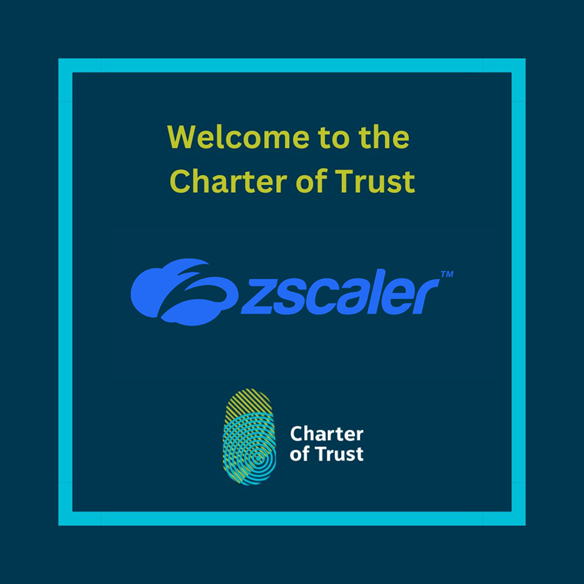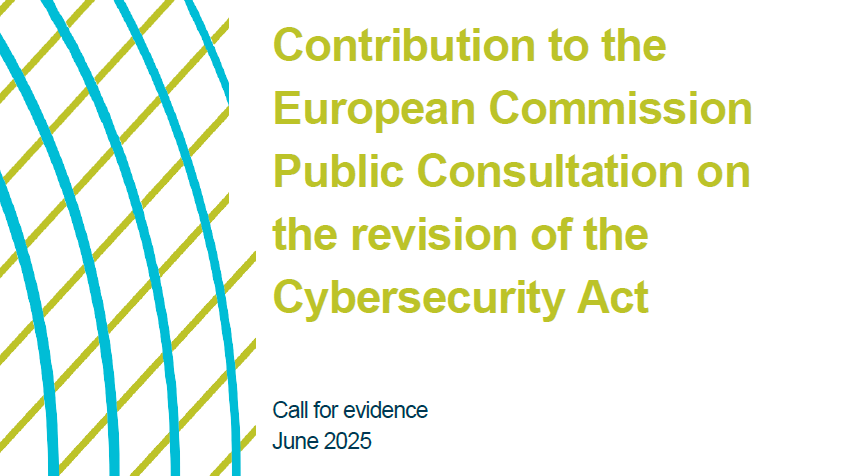IBM, together with several Partners of the Charter of Trust launched an initiative earlier this year to build the Charter’s threat information sharing capability related to digital infrastructures and the IoT supply chain.
By Nick Rossmann, Global Lead for Threat Intelligence, IBM Security X-Force
My team at IBM, a Partner of the Charter of Trust, discovered a malicious cyber operation in which a currently unknown adversary masqueraded as one of the world’s largest cold-chain providers in a global email phishing campaign seemingly aimed at spying on entities essential to the global distribution of Covid-19 vaccines.
From the onset of the pandemic, Covid-19 phishing emails have been one of the most prolific scams observed by the security community this year. Since late-January, attackers have duped recipients into opening emails with subject lines related to the novel coronavirus. Victims the world over, living in fear of the pandemic and its health and economic impact, received these emails and were enticed to click on their infected links and attachments. Doing so has led to compromises of individual devices and corporate networks, and ultimately to the theft of personal and company data. The fact that more employees are working from home during the pandemic, lacking in many instances sufficient cybersecurity protections, has exacerbated this threat and increased the need for organizations to take measures to address these security risks and be on alert.
The hackers claimed to represent Qingdao Haier Biomedical Co., a China-based company and one of the world’s largest cold-chain suppliers, making equipment to store and deliver materials at cold temperatures. In at least one copy of the spam email, the fake Haier representative sought to purchase about 500 vaccine refrigerators to bolster their temperature-controlled logistical services. The user, who purports to serve as Haier’s project manager in Africa, promised a $220,000 upfront payment, according to an email provided by the IBM security researchers. Attached to the email is a draft contract entitled, “RFQ – UNICEF CCEOP and Vaccine Project.” But the HTML attachment was actually a malicious file that, if opened, would prompt the recipient to share their secret login credentials with the attacker.
IBM’s security team has been researching Covid-19-related cyber-attacks and sharing with the Charter of Trust threat information sharing network since the early days of the pandemic. Based on the sophistication of this attack, which targeted a variety of industries related to vaccine storage and delivery before hackers cleaned up their digital footprints, researchers believe the campaign was launched by a nation-state, but declined to speculate on which one.
It’s unclear if any victims fell for the scam. But if they did, the harvested credentials could help an attacker “gain insight into internal communications, as well as the process, methods and plans to distribute a Covid-19 vaccine.
As pharmaceutical companies and governments the world over prepare for the logistical puzzle of disseminating hundreds of millions of vaccines to help blunt the coronavirus, cyber-criminals continue to leverage the urgency and despair of the global pandemic for intelligence and monetary gain. In this case, the phishing scheme spanned six countries and targeted European organizations that bolster immunization in poor countries.
In late November, the Atlanta-based cold chain company Americold Realty Trust said it was the target of a cyber-attack. The company believes the attack has been contained, but hadn’t “completed its investigation,” Americold said in a Nov. 30 regulatory filing. The company didn’t expect the hack to impact operations. Americold didn’t respond to requests for comment on the scope of the attack and the role email phishing may have played.
“As we shift toward distributing a vaccine for Covid-19, the logistics of this operation will become extremely critical,” said John Hultquist, a senior director at the cybersecurity firm FireEye Inc. “Seemingly mundane security issues could have major repercussions to such a complex and important effort.”
As Pfizer Inc. and Moderna Inc. work with U.S. and global regulators to approve their Covid-19 vaccines for emergency use, global distribution has already started. Pfizer and United Airlines transported the first mass air shipment of a vaccine from Brussels to Chicago in late November.
Pfizer’s vaccine must be stored at ultra-cold temperatures to avoid contamination. But maintaining temperature controls once a vaccine leaves the airplane remains a challenge. In parts of West Africa, for instance, temperatures in mid-December range from 70 to 90 degrees Fahrenheit. Even states in the U.S. lack necessary capacity to store large volumes of the vaccine without spoiling. This makes cold chain companies like China’s Haier essential to global distribution.
It also makes them prime targets for spoofing campaigns, said Claire Zaboeva, Senior Cyber Threat Analyst at IBM’s Security X-Force. Targets of the phishing operation have included the European Commission’s Directorate-General for Taxation and Customs Union, according to IBM. The agency is responsible for streamlining customs and duties as goods travel across the European Union. Attackers may see the agency as a single point of compromise to disrupt distribution across the region. Petrochemical companies were also targeted, since they produce dry ice to keep vials cool.
This was a well-prepared, precise, sophisticated campaign. We can’t ignore the fact that there are actors who will benefit from disrupting distribution of the vaccine. If an actor could disrupt consumer trust in the vaccine, that could play a pivotal role in changing perceptions of world power.
Raising cyber security resilience through collaboration between partners, is becoming a key objective for most companies. That is why IBM, together with several Partners of the Charter of Trust launched an initiative earlier this year to build the Charter’s threat information sharing capability related to digital infrastructures and the IoT supply chain. One of the first deliverables was to share threat information relating to Covid-19 and this case shows how relevant this topic is. The Charter of Trust has in parallel developed baseline security requirements for the supply chain, and this case also shows that such baseline requirements need to be complimented by security awareness since the methods used by adversaries evade normal security measures.
The more information on threats organizations, institutions and governments have access to, the better they can prepare to defend against them – making collaborative initiatives such as the Charter of Trust’s threat sharing platform, essential to thwarting off cyberattacks and safeguarding our digital environments.


You may also like

Charter of Trust Welcomes Zscaler
Zscaler is a leading cloud enterprise security provider helping global businesses accelerate their digital transformation by becoming more agile, efficient, resilient, and secure.
With Zscaler as a partner in the Charter of Trust, we aim to strengthen global cyber resilience through trust – by fostering actionable collaboration between industry leaders, governments, and public-private platforms. Zscaler brings robust expertise and innovation to the table, making it the ideal partner to drive this mission forward.
“Zscaler is excited to drive meaningful change alongside our new partners, laying a foundation of trust essential for successful digital transformation,” said Sam Curry, Zscaler CISO. “In today’s world, the need for reducing inherent trust and default access has never been greater. To truly stay ahead of ever-evolving threats, we must unite as a coalition of practitioners. Cyber attackers aren’t taking breaks, and with advancements like artificial intelligence, quantum cryptography, and emerging technologies on the horizon, collaboration is the key to securing the future.”
“We are proud to welcome Zscaler to the Charter of Trust. Their focus on cybersecurity innovation and commitment to openness reflect our shared ambition to create a safer, more resilient digital future. Together, we’ll strengthen trust, transparency, and security across the global digital landscape.” highlighted Dr. Summit Chada, Charter of Trust Co-Chair and COO Group Security & Business Lines CISO at Atos.
“With Zscaler as a Partner of the Charter of Trust, we believe that we can strengthen the global commitment to secure digital transformation by combining technological innovation with the Charter of Trust’s collaborative approach to cybersecurity leadership.” Ralf Schneider, Charter of Trust Co-Chair and Senior Fellow and Head of Cybersecurity and NextGenIT Think Tank at Allianz SE, welcomes Zscaler to the Charter of Trust.
We are excited to join forces and work together to advance digital trust and security across industries.

Contribution to the EU Commission Public Consultation on the revision of the Cybersecurity Act
We support Policy Option 2, which focuses on targeted regulatory measures that address key challenges without creating unnecessary complexity. In this context, we emphasize the need to enhance the role and resources of ENISA, to ensure effective implementation of both current legislation and the European Cybersecurity Certification Framework (ECCF).
Our recommendations aim to improve transparency, collaboration, and efficiency across the EU’s cybersecurity landscape. These include:
- Introducing clear timelines for the development of certification schemes.
- Enhancing stakeholder engagement throughout the process.
- Establishing more structured communication channels between ENISA, the Stakeholder Cybersecurity Certification Group (SCCG), and sectoral ISACs (Information Sharing and Analysis Centers).
We call for a stronger ECCF, one that is transparent, inclusive, and aligned with international standards to foster global interoperability and ease compliance for organizations across borders. Equally critical is the harmonization of certification practices across EU member states and the mutual recognition of certifications to minimize regulatory fragmentation.
The Charter of Trust advocates for technically robust, standards-based certification schemes, with well-defined roles and responsibilities. We also stress the need for clarity on the interplay between voluntary and mandatory certifications, particularly in relation to the upcoming Cyber Resilience Act (CRA).
To streamline compliance and reduce administrative burden, we propose a unified, risk-based incident reporting regime that consolidates requirements under regulations such as NIS2, CRA, GDPR, and DORA. This would not only simplify reporting for organizations but also enhance the EU’s overall cyber resilience. In addition, we recommend incorporating liability protections and grace periods for incident disclosure.
Finally, we urge the Commission to strengthen supply chain security by adopting a risk-based classification approach and establishing baseline cybersecurity requirements for ICT suppliers.
The Charter of Trust remains fully committed to supporting the European Commission in shaping a secure, resilient, and trusted digital future for Europe. We look forward to continued collaboration in building a cybersecurity framework that meets the needs of all stakeholders, today and in the years to come.




